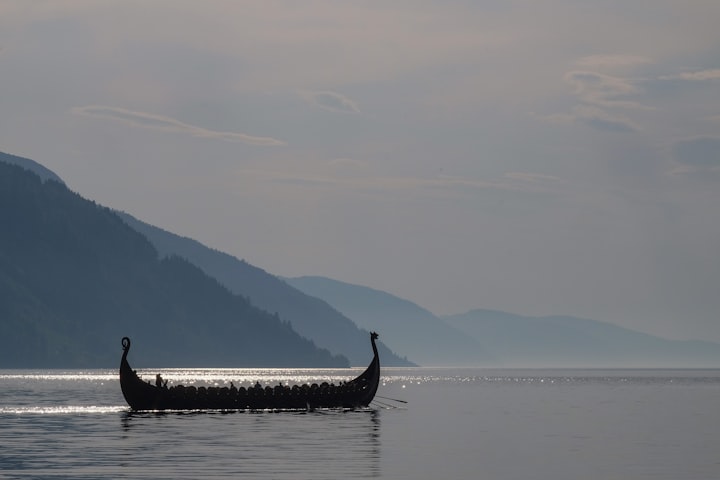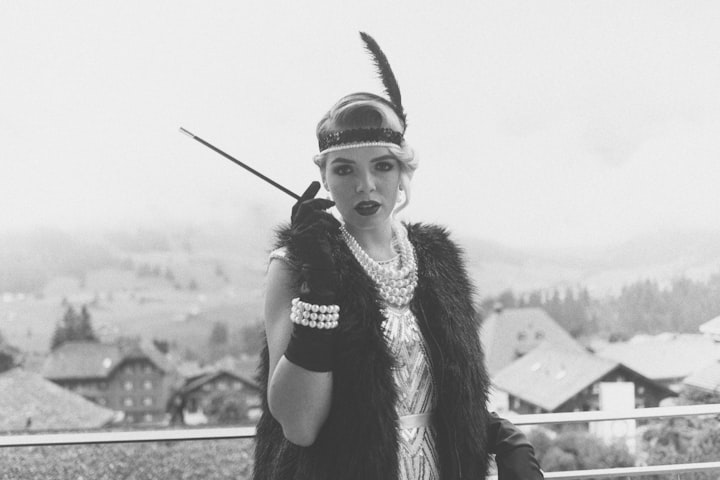First Encounters
A Historical Short Story

There were times that Alfred - Brother Alfred, as they called him now, but a calling he had never felt - regretted being taught to read and write.
Without those skills, he could have been a farmer like his father and uncles, or followed his brothers into the army or the sea. Perhaps he could have been apprenticed to a tradesman, even, and learned the art of letters in his own time.
In any of those other live, Alfred could have stayed with his family, until he went on to create his own. He could have chosen his fate, and spent his free time as he chose. and dreamed of anything he couldn't accomplish with his own two hands.
Instead, the village priest had noticed that he had a good memory and a steady hand at drawing, even when it was only sticks in the mud with the other children. He had come to Alfred's family farm in east Northumbria the next day, with an offer. The Priest would teach Alfred hiss letters and numbers, in exchange for Alfred's service in the parish.
Even though it took a set of hands away from the farm, it sounded like a golden opportunity. Alfred would not be paid for his work, for a village priest had little money to spare, but neither would he have to pay for the learning he received, and once his service was done, he would have an education. That, to a mere farmer's son, was worth more than gold.
What Alfred could not have known, what none of his family had the experience or knowledge to understand, was that there would be no end to his service. As far as the Church was concerned, in agreeing to the teaching he had become a novice, and as soon as he was old enough, he was sent to the Monastery on the Holy Isle of Lindisfarne, where he was expected to spend the rest of his life.
It was not an entirely bad life - Alfred could take pride in his scribal work, and rarely had to worry about his next meal or the roof over his head - but it was lonely.
Except for prayers, some of them in the middle of the night or the pre-dawn hours, earlier than even a farmer was expected to be awake, most of the day was spent in mandated silence. Even meals, which Alfred remembered as the most social part of his family's day, had a vow of silence. The quiet felt oppressive, sometimes, as though Alfred might burst, or lose the ability to talk at all, as his voice withered from disuse.
Glancing out the window, he saw a strange ship on the horizon, and thought longingly of his sailor brother, out seeing the world. He wondered at the ship's origins but shoved it out of mind as something he would likely never know. Still, the ship's design was an intriguing one, long and sleek, low in the water, but with a raised prow and a single striped sail.
Alfred looked down at the page he was illuminating. A letter O dominated the upper corner, and he hadn't decided how to decorate it yet. Carefully, he sketched the sun rising over the sea, and added the ship. The page was to do with the story of Jonah, after all, so it wasn't like the Abbot could complain of a nautical theme.
A bell rang, deep and sonorous, and Alfred sighed, levering himself out of his seat. Time to tend the animals; as the son of a farmer, those tasks always seemed to fall to Alfred and one or two others of a similar background, never mind that he had been taken from his family years before his father deemed him old and strong enough to yoke or drive the oxen himself. At least he, Edward and Godwin knew enough to be wary and respectful of the animals.
Sometimes, Alfred wondered if the noble-born second sons were given tasks like tending the alter and stocktaking less because they were unused to manual labor, and more because they were utterly clueless.
That was a generous take that he didn't always feel like extending to the life he considered a misery.
Alfred met up with Godwin on the way downstairs from the scribing room, exchanging quick, subtle smiles and speaking in barely audible undertones. "Fields first, or animals?"
The planting had been done last week, and the important thing as far as the fields went was to keep them weed-free until the crops sprouted. No-one wanted another disaster like two years ago, when the second son of some noble couldn't tell the plants apart and uprooted half a crop of wheat before someone noticed and stopped him, under the belief that anything that wasn't ripened grain must be a weed. Half the crop had been fine, and Alfred had managed to separate some of the seedlings from the actual weeds and re-plant them, but that winter had been a difficult one.
Godwin considered the question. "Animals, I think. Some of the cows might be pregnant, after those farmers taking their stud bulls to market sought shelter during the last of the winter storms, and I want to check them over before we're presented with calves."
Alfred chuckled under his breath. He'd tried to tell the Abbott that the bulls should be kept separate from the cows and each other, but there simply hadn't been enough room, and the farmers wouldn't hear of their livestock being kept outside the abbey walls or tied up in the yard like a horse. That was the problem with noble boys raised in a monastery their whole lives: it was as though they never learned what happened between male and female at any given opportunity.
Looking up at the sky, Alfred frowned. "Smoke... the charcoal burners don't usually set their fires so large, do they?"
Edward jogged up behind them, and promptly reversed his course. "No, that's something much bigger burning. I'll tell the Abbott to expect to shelter at least one family tonight and join you once I'm done. Likely he'll send one of the younger novices as a runner to find out what's going on."
They quickly discovered what had caused the fire, but not in the expected way.
Not two hours after Alfred saw the fire, a bunch of fur-wearing men, wielding swords and axes and carrying painted wooden shields, burst through the doors of the Abbey.
The Abbott and Door-warden, bustling forward in outrage to order them to stop, were the first to be killed.
The collection box, the silver cross and candlestick and incense burners, were unceremoniously yanked from their places, quickly followed by everything else perceived to be of value. Those monks who tried to stop the invaders died, cut down like grain at harvest-time. Those of the Brothers who did not resist were bound with ropes and marched down to the harbor.
Past the burned village, streets scattered with corpses and the survivors, and their valuables rounded up just as we were. Down to where the ship Alfred had seen on the horizon was moored, along with another. The raised prow was carved into the shape of a dragon's head, a choice that seemed oddly portentous.
Whatever came next, it foretold a great change in the world.

If you liked this story, leave a heart or a tip, and follow me on Vocal and Medium! Or check out my published works on Amazon at the link below.
About the Creator
Natasja Rose
I've been writing since I learned how, but those have been lost and will never see daylight (I hope).
I'm an Indie Author, with 30+ books published.
I live in Sydney, Australia






Comments (2)
Vivid imagery of this Viking raid. Well done!
Very intriguing and wonderfully written.